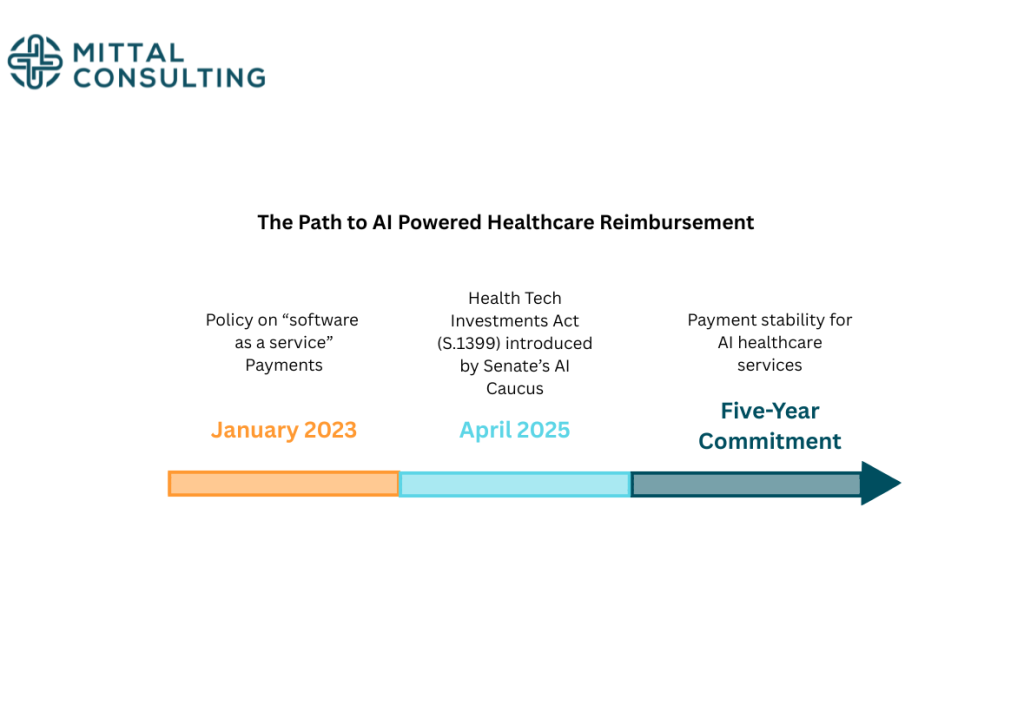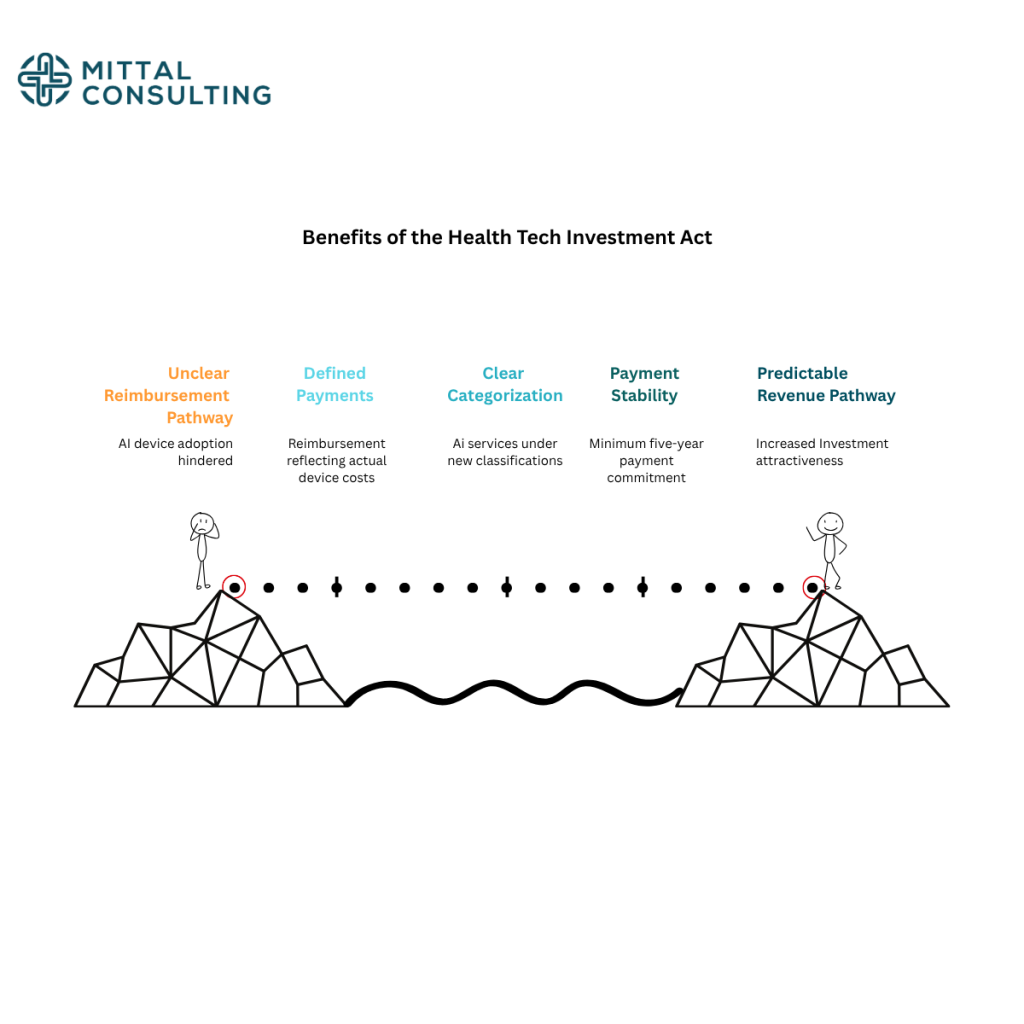Making AI-Powered Healthcare Mainstream: What the Health Tech Investment Act (S.1399) Means for AI-Device Developers
By- Anya Bekhtel (Mittal Consulting)
Artificial intelligence and machine learning are driving innovation throughout healthcare, creating opportunities for faster and more accessible treatment solutions. While the FDA has authorized hundreds of AI and ML enabled devices over the last five years, the pathway to reimbursement for these systems has remained unclear. The Senate Artificial Intelligence Caucus aims to bridge this payor gap with the recently introduced Health Tech Investment Act (S.1399).
If the Health Tech Investment Act becomes law, S.1399 will amend the Social Security Act to ensure appropriate payment of FDA-authorized algorithm-based healthcare services under the Medicare program. The change would mark a significant shift in how Medicare will approach payment for algorithm-based healthcare services. S.1399 commits to clear categorization of AI-powered healthcare services under new technology ambulatory payment classifications that set payment rates based on actual costs submitted by device manufacturers. The bill commits payment AI-powered healthcare services to their payment categories for at least five years, providing crucial reimbursement stability for developers and healthcare providers.
The Health Tech Investment Act creates important opportunities and new considerations for healthcare technology companies, providers, and investors. Startups and smaller companies developing AI-powered healthcare solutions stand to benefit most from this legislative proposal. Many early-stage health tech companies have struggled to establish a clear reimbursement plan within the existing payment framework, which often fails to account for the unique cost structures of software-based services that utilize artificial intelligence to assist in diagnosis and treatment decision-making. The bill’s provisions would ensure these innovative technologies receive appropriate compensation through the Medicare program by establishing clearer payment classifications.
For investors, this legislation may offer increased certainty in a complex regulatory environment, potentially making investments in this sector more attractive. The bill creates a more predictable revenue pathway for algorithm-based healthcare services. By standardizing the payment approach for these technologies and codifying previous policy regarding “software as a service” payments retroactive to January 2023, the legislation provides much-needed financial visibility for companies developing AI healthcare solutions.
While there is still a lengthy legislative process before S.1399 becomes law, the Health Tech Investment Act represents an important effort to modernize US healthcare and increase patient and provider access to novel methods of screening, detection, diagnosis, and treatment.


References
https://www.congress.gov/bill/119th-congress/senate-bill/1399/text
